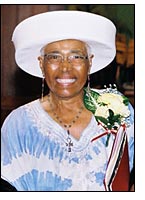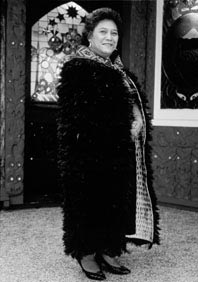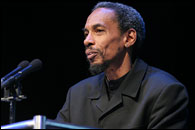" I was, consequently, obliged to retrace my steps. After passing the hospital, I met Gen. Christophe, and asked him who had ordered the town to be fired. He replied that it was he. I reprimanded him severely for having employed such rigorous measures. "Why," said I to him, "did you not rather make some military arrangements to defend the town until my arrival?"
He answered, "What do you wish, general? My duty, necessity, the circumstances, the reiterated threats of the general commanding the squadron, forced me to it. I showed the general the orders of which I was the bearer, but without avail." He added, "that the proclamations spread secretly in the town to seduce the people, and instigate an uprising, were not sanctioned by military usage; that if the commander of the squadron had truly pacific intentions, he would have waited for me; that he would not have employed the means which he used to gain the commander of the Fort of Boque, who is a drunkard; that he would not in consequence have seized this fort; that he would not have put to death half of the garrison of Fort Liberty; that he would not have made a descent upon Acul, and that, in a word, he would not have committed at first all the hostilities of which he was guilty.
Gen. Christophe joined me, and we continued the route together. On arriving at Haut-du-Cap, we passed through the habitations of Breda as far as the barrier of Boulard, passing by the gardens. There I ordered him to rally his troops, and go into camp on the Bonnet until further orders, and to keep me informed of all the movements he made. I told him that I was going to Héricourt; that there, perhaps, I should receive news from the commander of the squadron; that he would doubtless deliver to me the orders of the Government; that I might even meet him there; that I should then ascertain the reasons which had induced him to come in this manner; and, that, in case he was the bearer of orders from the government, I should request him to communicate them to me, and should in consequence make arrangements with him.
General Christophe left me then to repair to the post which I had assigned to him; but he met a body of troops who fired upon him, forced him to dismount from his horse, plunge into the river, and cross it by swimming.
After separating from Gen. Christophe, I had at my side Adjutant-General Fontaine, two other officers, and my aide-de-camp, Couppé, who went in advance; he warned me of the troops on the road. I ordered him to go forward. He told me that this force was commanded by a general. I then demanded a conference with him. But Couppé had not time to execute my orders; they fired upon us at twenty-five steps from the barrier. My horse was pierced with a ball; another ball carried away the hat of one of my officers. This unexpected circumstance forced me to abandon the open road, to cross the savanna and the forests to reach Héricourt, where I remained three days to wait for news of the commander of the squadron, again without avail.
But, the next day, I received a letter from General Rochambeau, announcing "that the column which he commanded had seized upon Fort Liberty, taken and put to the sword a part of the garrison, which had resisted; that he had not believed the garrison would steep its bayonets in the blood of Frenchmen; on the contrary, he had expected to find it disposed in his favor." I replied to this letter, and, manifesting my indignation to the general, asked to know, "Why he had ordered the massacre of those brave soldiers who had only followed the orders given them; who had, besides, contributed so much to the happiness of the colony and to the triumph of the Republic. Was this the recompense that the French Government had promised them?"
I concluded by saying to Gen. Rochambeau, that "I would fight to the last to avenge the death of these brave soldiers, for my own liberty, and to reëstablish tranquillity and order in the colony."
This was, in fact, the resolution I had taken after having reflected deliberately upon the report Gen. Christophe had brought me, upon the danger I had just run, upon the letter of Gen. Rochambeau, and finally upon the conduct of the commander of the squadron.
Having formed my resolution, I went to Gonsaives. There I communicated my intentions to Gen. Maurepas, and ordered him to make the most vigorous resistance to all vessels which should appear before Port-de-Paix, where he commanded; and, in case he should not be strong enough,--having only half of a brigade,--to imitate the example of Gen. Christophe and afterward withdraw to the Mountain, taking with him ammunition of all kinds; there to defend himself to the death.
I then went to St. Marc to visit the fortifications. I found that the news of the shameful events which had just taken place had reached this town, and the inhabitants had already fled. I gave orders for all the resistance to be made that the fortifications and munitions would allow of.
As I was on the point of setting out from this town to go to Port-au-Prince and the southern part to give my orders, Captains Jean-Philippe Dupin and Isaac brought me dispatches from Paul L'Overture, who commanded at Santo Domingo. Both informed me that a descent had just been made upon Oyarsaval, and that the French and Spaniards who inhabited this place had risen and cut off the roads from Santo Domingo.
I acquainted myself with these dispatches. In running over the letter of Gen. Paul and the copy of Gen. Kerverseau's to the commander of the place of Santo Domingo, which was enclosed in it, I saw that this general had made the overture to the commander of the place, and not to Gen. Paul, as he should have done, to make preparations for the landing of his force. I saw also the refusal given by Gen. Paul to this invitation, until he should receive orders from me. I replied to Gen. Paul that I approved his conduct, and ordered him to make all possible effort to defend himself in case of attack; and even to make prisoners of Gen. Kerverseau and his force, if he could. I returned my reply by the captains just mentioned. But foreseeing, on account of the interception of the roads, that they might be arrested and their dispatches demanded, I gave them in charge a second letter, in which I ordered Gen. Paul to use all possible means of conciliation with Gen. Kerverseau. I charged the captains, in case they should be arrested, to conceal the first letter and show only the second.
My reply not arriving as soon as he expected, Gen. Paul sent another black officer with the same dispatches in duplicate. I gave only a receipt to this officer, and sent him back. Of these three messengers two were black and the other white. They were arrested, as I had anticipated; the two blacks were assassinated in violation of all justice and right, contrary to the customs of war; their dispatches were sent to Gen. Kerverseau, who concealed the first letter, and showed to Gen. Paul only the second, in which I had ordered him to enter into negotiations with Gen. Kerverseau. It was in consequence of this letter that Santo Domingo was surrendered.
Having sent off these dispatches, I resumed my route toward the South. I had hardly set forward when I was overtaken by an orderly, coming up at full speed, who brought me a package from Gen. Vernet and a letter from my wife, both announcing to me the arrival from Paris of my two children and their preceptor, of which I was not before aware. I learned also that they were bearers of orders for me from the First Consul. I retraced my steps and flew to Ennery, where I found my two children and the excellent tutor whom the First Consul had had the goodness to give them. I embraced them with the greatest satisfaction and ardor. I then inquired if they were bearers of letters from the First Consul for me. The tutor replied in the affirmative, and handed me a letter which I opened and read about half through; then I folded it, saying that I would reserve the reading of it for a more quiet moment. I begged him then to impart to me the intentions of the Government, and to tell me the name of the commander of the squadron, which I had not yet been able to ascertain."
Toussaint L'Overture














